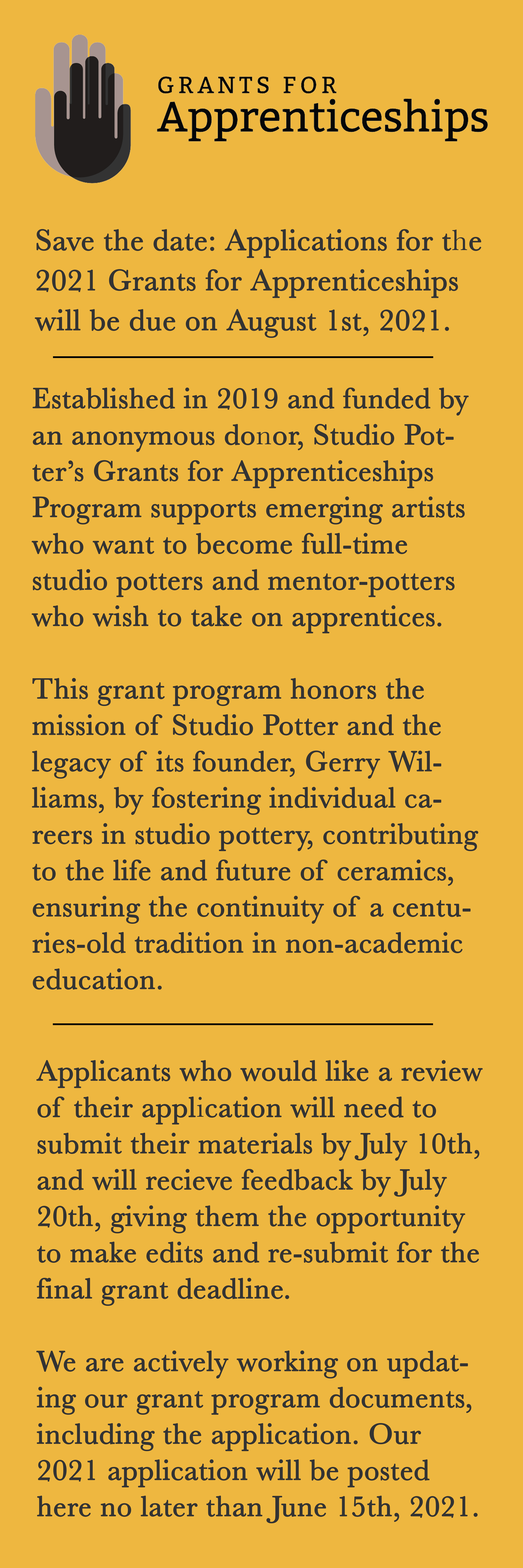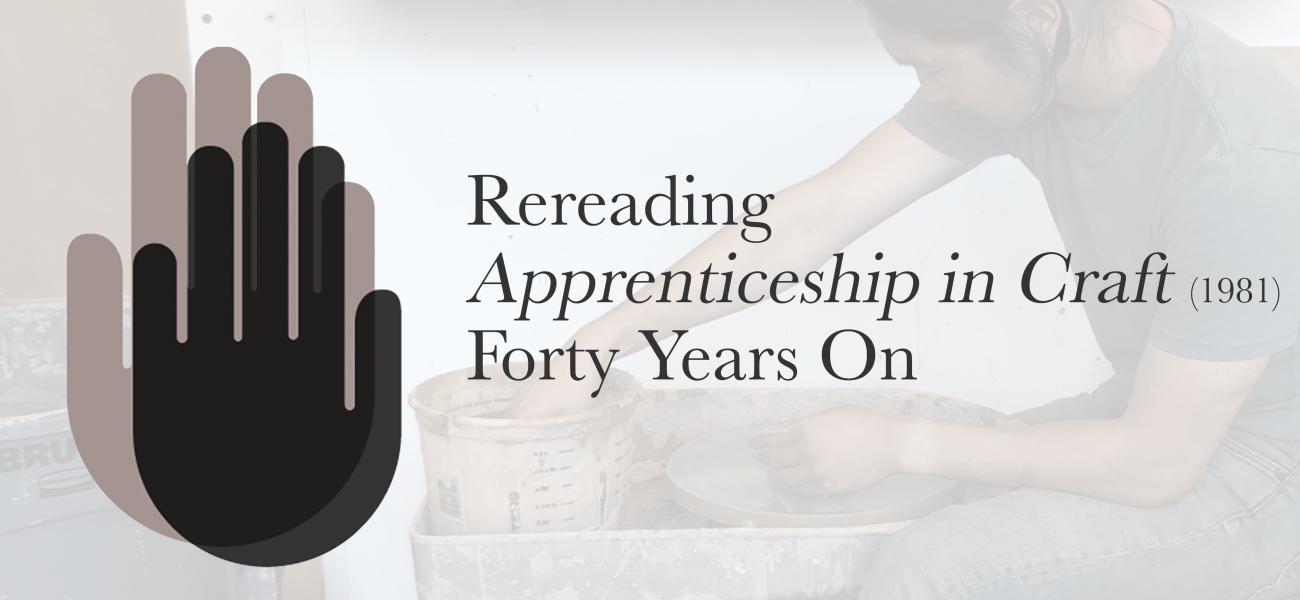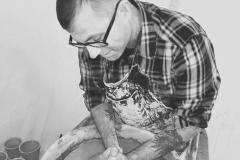 The possibility and potential of apprenticeship as a mode of training was of key interest to Gerry Williams (1926–2014), founding editor of Studio Potter. The first issue of the journal introduced the diary of the potter Daniel Clark, who made pots in New Hampshire from 1792 until 1828. Gerry took note of how Clark’s workshop ran with the vital assistance of apprentices:
The possibility and potential of apprenticeship as a mode of training was of key interest to Gerry Williams (1926–2014), founding editor of Studio Potter. The first issue of the journal introduced the diary of the potter Daniel Clark, who made pots in New Hampshire from 1792 until 1828. Gerry took note of how Clark’s workshop ran with the vital assistance of apprentices:
Potshops in Colonial times were usually manned by three or four persons. Daniel Clark, as owner, probably did most of the throwing, but the apprentices and another man usually did the firing. The apprentice system was in vogue; Clark's first apprentice began at age eleven; later, another left who had been with him twenty years. While sons and apprentices did not always continue in the trade, the Clark pottery functioned without interruption into the next generation.1
As a New Hampshire-based potter himself, Williams further honored Clark’s name by attaching it to the nonprofit foundation he and fellow potters set up to publish Studio Potter and carry out additional projects.
Apprenticeship was the subject of articles in early issues of the journal. Attention to the subject expanded dramatically as the Daniel Clark Foundation helped sponsor a national Conference on Apprenticeship in 1978, together with the American Crafts Council and the State University of New York, Purchase, and funding from the National Endowment for the Arts and attended by over one hundred participants. The major themes of discussion were lack of cohesive standards for craft apprenticeship; disparity between academic and apprenticeship training; and governmental regulations of apprenticeship. Out of the gathering grew the National Council for Apprenticeship in Art and Craft and, in 1980, the International Council for Apprenticeship in Craft, under the auspices of the World Craft Council.


